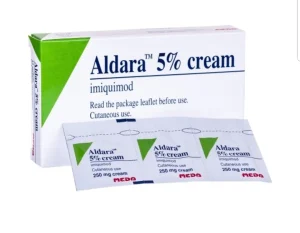 Introduction:
Introduction:
In the realm of dermatology, the quest for effective and non-invasive treatments for skin cancer and precancerous lesions has led to the exploration of innovative solutions. One such breakthrough is the use of Imiquimod cream, a topical immune response modifier that has demonstrated remarkable efficacy in the treatment of skin cancer and actinic keratosis. In this blog post, we will explore the different aspects of Imiquimod cream, including its preparations, concentrations, recommended doses, outcomes, and potential adverse effects.
Understanding Imiquimod Cream:
Imiquimod is a topical medication that harnesses the body’s immune system to combat abnormal skin cells, making it a valuable tool in the management of skin cancer and actinic keratosis. Available in various preparations and concentrations, Imiquimod has proven to be an effective and convenient treatment option.
Preparations and Concentrations:
Imiquimod is commonly available as a cream, and various formulations exist with concentrations ranging from 3.75% to 5%. These concentrations are carefully formulated to balance efficacy with tolerability, allowing dermatologists to tailor treatment plans based on individual patient needs and the severity of the skin condition.
Recommended Doses for Treatment:
The application frequency and duration of Imiquimod treatment vary depending on the specific skin condition being addressed. For actinic keratosis, a common regimen involves applying the cream once daily for two to three times per week for several weeks. For skin cancer, the recommended treatment duration may be longer, and the application frequency could be adjusted based on the physician’s assessment.
Outcomes and Efficacy:
Numerous medical studies have supported the efficacy of Imiquimod in treating actinic keratosis and some types of skin cancer, particularly superficial basal cell carcinoma. The cream stimulates the body’s immune response, leading to the destruction of abnormal cells. Studies have reported high clearance rates for actinic keratosis, and some patients have experienced successful outcomes in treating superficial basal cell carcinoma.
Proposed Mechanism of Action:
Imiquimod’s mechanism of action involves stimulating the production of cytokines and other immune system components, promoting the recognition and destruction of abnormal cells. This immune response contributes to the elimination of precancerous lesions and certain types of skin cancer.
Success Rates of Imiquimod in BCC and AK’s:
Medical studies have reported impressive success rates for Imiquimod in the treatment of both basal cell carcinoma (BCC) and actinic keratosis (AK). For actinic keratosis, clinical trials have shown clearance rates ranging from 70% to 90% with the use of Imiquimod. This indicates a high efficacy in addressing precancerous lesions caused by sun exposure.
In the case of basal cell carcinoma, particularly the superficial type, Imiquimod has demonstrated success rates comparable to traditional surgical interventions. Studies have reported clearance rates exceeding 80% for superficial basal cell carcinoma treated with Imiquimod, showcasing its effectiveness in managing certain types of skin cancer.
These success rates underscore the significance of Imiquimod as a non-invasive and topical approach to treating both actinic keratosis and superficial basal cell carcinoma. However, it’s essential to note that individual responses to treatment may vary, and the decision to use Imiquimod should be made in consultation with a dermatologist based on the specific characteristics of the skin condition and the patient’s overall health.
Patients Who Would Benefit Most:
Imiquimod cream is often recommended for patients with actinic keratosis, a precancerous skin condition caused by prolonged sun exposure. Additionally, it has shown promise in treating superficial basal cell carcinoma, particularly in cases where surgical intervention may not be the preferred option. The cream is suitable for patients seeking a non-invasive and topical approach to skin cancer and actinic keratosis treatment.
Potential Adverse Effects:
While generally well-tolerated, Imiquimod treatment may be associated with mild to moderate local skin reactions. These can include redness, itching, swelling, and crusting at the application site. In some cases, patients may experience flu-like symptoms. It is crucial for patients to communicate any adverse effects with their healthcare provider to ensure appropriate management.
Conclusion:
Imiquimod cream stands as a remarkable advancement in dermatology, providing a non-surgical and effective solution for the treatment of skin cancer and actinic keratosis. As with any medical intervention, consultation with a dermatologist is essential to determine the most suitable treatment plan based on individual factors. With its proven efficacy and convenient topical application, Imiquimod offers hope for those navigating the challenges of skin cancer and precancerous lesions.
